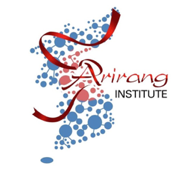SISA Journal
사드 합의 2년… 뺨만 맞은 한국
Two years after THAAD agreement... a slap to South Korea’s face
31일 중국 대형 여행사 베이징중국국제여행사 홈페이지에서 해외여행 목적지에 '한국'을 쳐 넣고 클릭하자 텅 빈 페이지가 떴다. 상품이 하나도 없다는 뜻이다. 중국 최대 모바일 여행 앱(응용프로그램)인 '씨트립'에도 해외여행 목적지 항목에 한국 도시는 없다. 일본 도시는 26곳이 소개돼 있다. 여행업계 관계자는 "중국 대형 여행사들이 한국 상품의 온라인 광고·모객을 금지당하고 있다"며 "개인적으로 한국에 자유 여행을 가는 것은 몰라도 단체 관광은 당국이 통제하는 한한령(限韓令)이 계속되고 있다"고 말했다.
An empty page appeared on the website of a large Chinese travel agency, Beijing China International Travel Agency, on October 31st, after typing "Korea" for overseas travel destinations. It means that there is no product at all. There are no Korean cities on the list of destinations for overseas trips, even on "City Trip," China's largest mobile travel app. Even twenty-six Japanese cities are available. A travel industry source said, "Large Chinese travel agencies are banned from advertising and seeking tourists online destined for South Korea. Personally, I don’t know if I could go freely on a trip to South Korea, but group tours continue to be controlled by the authorities under the ‘anti-South Korean Wave’ (한한령 ,限韓令) order.”
한국 정부는 중국이 사드(고고도 미사일 방어 체계) 배치에 반발하며 보복 조치를 하자 2017년 10월 31일 '미국의 MD (미사일 방어 체계) 참여, 사드 추가 배치, 한·미·일 군사동맹'을 하지 않겠다는 이른바 '3불(不)' 입장을 표명했다. 양국은 대신 "모든 분야의 교류 협력을 정상적인 발전 궤도로 조속히 회복시켜 나가기로" 합의했다. 당시 우리 정부는 사드 문제는 '봉인'됐고, 교류 협력이 정상화될 것이라고 했지만 2년이 지난 지금도 안보·경제·관광 분야 등에서 중국의 보복은 계속되고 있다.
After Communist China’s retaliation (economic and political) to the initial deployment of the THAAD missile defense system, the South Korean government, on October 31, 2017, issued its "three no" position: that it would not participate in the U.S. missile defense system; deploy any additional THAAD systems; or form a military alliance between South Korea, the U.S. and Japan. The two countries then agreed to "restore exchanges and cooperation in all areas as soon as possible on a normal development path." At the time, the South Korean government said the THAAD issue was "sealed" and that “exchange and cooperation would be normalized,” but two years later, China's retaliation in the security, economic and tourism sectors continues.
2016년 사드 배치 이후 한국 연예인의 중국 내 상업 공연은 중단된 상태다. 공연 비자 자체가 나오지 않는다. 소규모 팬 사인회도 불발하는 경우가 있다. 우리 정부 관계자는 "중국인 단체 관광과 한류에 대한 일부 제한은 남아 있지만, 대부분 분야에서는 한·중 관계가 많이 개선됐다"고 말하지만, 현장의 실태는 전혀 다르다. 한국인을 상대로 한 보복은 오히려 집요해지고 있다. 미국 로체스터대 이스트먼 음대 오케스트라가 중국 순회공연을 하려고 하자 한국인 단원 3명에 대해서만 공연 비자 발급을 거부했다는 논란이 대표적 사례다. 사드 보복이 한국인이 소속된 해외 단체로까지 확대된 것이다.
After the initial deployment of THAAD in 2016, the South Korean celebrity's commercial performance in China were suspended. Visas to perform in China could not be obtained. Small fan signing events were also never executed. A South Korean government official said, "Some restrictions remain on Chinese group tours to South Korea and Korean Wave related content, but in most areas, South Korea-China relations have improved a lot," however the reality is very different. Retaliation (political and economic) against Koreans is becoming more persistent. A case in point is the controversy of the Eastman Music Orchestra of the University of Rochester in the United States, which China refused to issue performance visas to its three South Korean members when it tried to tour China. Communist China’s retaliation for THAAD has extended to overseas organizations to which South Koreans belong as well.
윤덕민 전 국립외교원장은 "우리의 미래 주권까지 포기하는 약속을 해주면서 10·31 합의를 했지만 2년이 지난 지금도 사드 보복은 여전히 진행 중"이라며 "중국은 사드 보복이란 명분을 이용해서 한류(韓流) 확산을 막고 중국 기업과 경쟁하는 한국 산업계의 성장을 제한하는 효과까지 얻으려 하는 것으로 보인다"고 말했다. 남주홍 전 국정원 1차장은 "10·31 합의를 통해 추가적인 사드 포대 배치까지 포기하면서 미국 측으로부터 '주한미군을 보호할 생각이 있느냐'는 의심을 사게 됐다"고 지적했다.
Yoon Deok-min, former head of the National Diplomatic Academy, said, "We reached an agreement on October 31 of 2017, with (China), a promise to give up our future sovereignty, but two years later, the retaliation for THAAD is still underway. China seems to be trying to prevent the spread of the Korean Wave and limit the growth of Korean industries competing with Chinese companies under retaliation for THAAD.” Nam Joo-hong, former deputy director of the National Intelligence Service, pointed out, "As we gave up the deployment of additional THAAD batteries through the October 31, 2017 agreement, the U.S. side has raised doubts about whether it intends to protect the U.S. forces in Korea."
3불(不) 합의
2017년 10월 31일 한국 정부가 중국의 요구대로 ‘사드 추가 배치, 미국의 MD(미사일 방어 체계) 참여, 한·미·일 군사동맹’을 하지 않겠다고 표명해주는 대신, 한·중 양국이 모든 분야 교류 협력을 정상적으로 회복시켜 나가기로 한 합의. 당시 청와대 관계자는 사드 문제를 “봉인시켜 놓은 상태”라고 했지만 이후에도 중국은 계속 사드 문제를 제기했다.
3(不) Agreement
On October 31, 2017, the South Korean government announced that it would not deploy any more additional THAAD systems; participate in the U.S. missile defense system (MD); and form a military alliance between South Korea, the U.S. and Japan as requested by China; but agreed that Seoul and Beijing will restore their cooperation in all areas as normal. At the time, a Blue House official said the THAAD issue was "accepted" but even after that, China continues to raise the issue.
http://news.naver.com/main/read.nhn?mode=LSD&mid=sec&sid1=001&oid=023&aid=0003483840
[베이징=박수찬 특파원 soochan@chosun.com] [김진명 기자]

